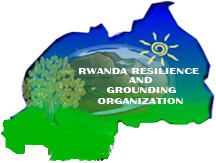Prevalence and factors associated with depression and anxiety among cancer patients seeking treatment at Butaro Cancer Center of Excellence in Rwanda
Samuel Habimana 1*†, Emmanuel Biracyaza 2,3†, Tharcisse Mpunga4*, Epaphrodite NSABIMANA5, Florence Kaitesi 6, Pascal Nzamwita 6, & Jansen Stefan7
Abstract:
Introduction: Depression and anxiety among cancer patients are public health concerns worldwide. Studies on the prevalence and factors associated with depression and anxiety among cancer patients are limited. This study determined the prevalence and factors of depression and anxiety among cancer patients in Rwanda’s inpatient and outpatient settings.
Methods: Cross-sectional study was conducted among 425 cancer patients fromButaro Cancer Center of Excellence, Rwanda. Socio-demographic and psychometric instruments were administered among participants. We employed bivariate and multivariate logistic regression models to assess associated factors of anxiety and depression.
Results: Prevalence of depression and anxiety was 42.6% and 40.9%, respectively. Cancer patients initiated to chemotherapy had less likelihood to be depressive [OR=2.06;95%CI (1.11-3.79), p=0.021] than those initiated to chemotherapy and counseling. Patients with breast cancer had greater odds of experiencing depression [OR=2.07,95%CI (1.01-4.22)] than those with Hodgikins’s Lymphoma cancer. Patients with depression had greater odds of developing anxiety [OR=1.76, 95%CI(1.01-3.05),p=0.046] than those with no depression. Depressive patients had greater odds to have anxiety [OR=1.76;95%CI(1.01-3.05),p=0.046)].
Conclusion: Considering psycho-oncology therapies and enhancing clinical monitoring and treatments of anxiety and depression need to be prioritized for attenuating depression and anxiety.
Key-words: Cancer; Depression; Anxiety; Cancer patient; Oncology


